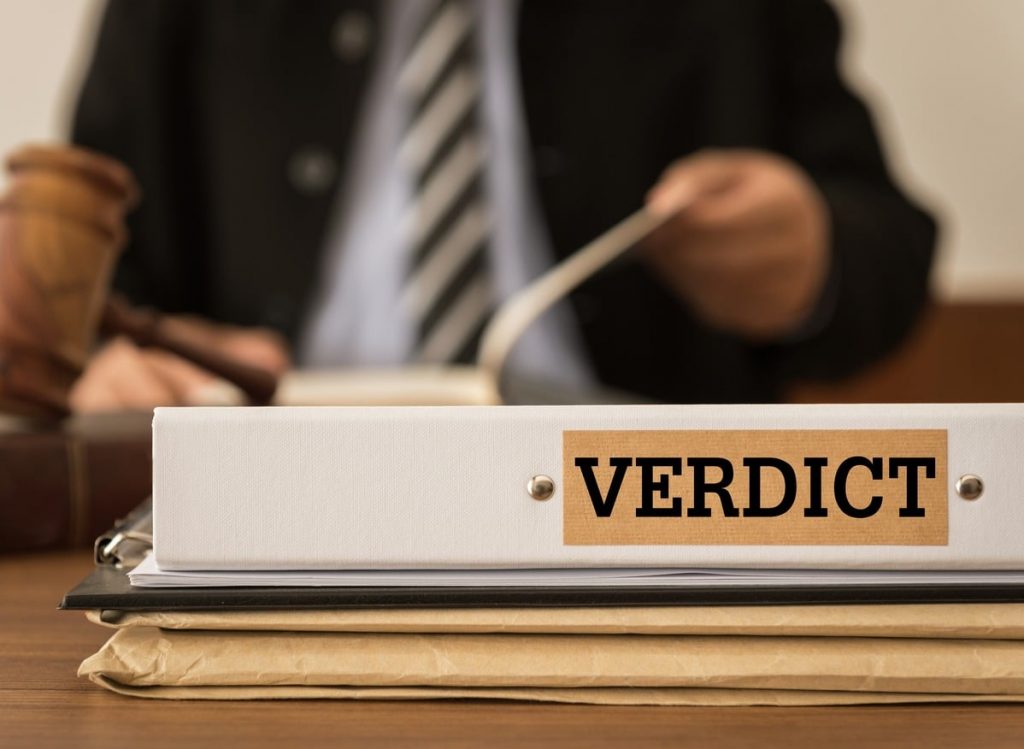This past week, a federal jury in South Dakota awarded $1.2 million in damages to a former Special Agent with the South Dakota Division of Criminal Investigation (DCI).
The jury’s verdict found that DCI had retaliated against and sexually harassed former Special Agent Laura Kaiser.
 The case
The case
Kaiser filed her complaint in federal court in 2015 against DCI and others. The information below is taken from Kaiser’s amended complaint.
Kaiser began working for DCI’s Drug Task Force in 2003 and in 2011, a Brown County Deputy joined the Drug Task Force as well. Kaiser states that this Deputy sexually harassed her by subjecting her to, among other things, unwanted touching and lewd/offensive sexual comments.
Eventually Kaiser told some colleagues about the harassment, information that then made its way around the “entire office.”
DCI investigated Kaiser’s complaint and she claims that a DCI supervisor told Kaiser that it seemed like she had fabricated the allegations. When Kaiser pointed out that the harasser had admitted to the conduct, the DCI supervisor still said her allegations seemed “orchestrated.”
Less than two weeks after Kaiser’s harassment concerns were reported, DCI put her on a performance improvement plan (PIP). They did so despite having given her positive performance reviews months earlier.
Because of the treatment she received from her coworkers, Kaiser says she had to take sick leave, began seeing a counselor, and was prescribed medication for anxiety and depression.
In late 2011 and early 2012, DCI demoted Kaiser, reduced her pay, and involuntarily transferred her to Pierre, South Dakota (about 150 miles away).
In Pierre, Kaiser was forced to live in a Law Enforcement Academy Dormitory and was isolated from her husband and son.
In January 2012, Kaiser filed a charge of discrimination with the EEOC. After she filed her EEOC charge, Kaiser says that DCI began to provide negative references to her potential employers.
Finally, in May 2012, Kaiser could not tolerate the mistreatment any longer and says she had no choice but to resign from DCI (also known as constructive discharge).
Kaiser continued to apply for job for which she says she was qualified but did not receive any job offers. And she believes her inability to get hired was due to negative references from DCI.
The jury’s verdict
After a trial, the jury’s verdict found that DCI had retaliated and discriminated against/harassed Kaiser.
As a result, the jury awarded her:
- $400,000 for emotional distress
- $311,812 for lost wages
- $498,929 for lost benefits
Notably, the court has indicated that additional damages, including front pay damages and attorneys’ fees, may still be awarded. The jury’s verdict form did not make clear if the claims were under Title VII or the state anti-discrimination law.
If, however, the claims are proceeding under Title VII, then the emotional distress damages will be subject to Title VII’s statutory caps, under which the most Kaiser can receive for emotional distress damages is $300,000 (and perhaps even less than that depending on the number of DCI employees). Title VII does not have a statutory cap on the amount of damages that can be awarded for lost wages and benefits.
SexualHarassmentSurvivalGuideWhat remedies are available if I prove sexual harassment or retaliation?
A variety of potential remedies will be available if you win your sex harassment or retaliation case.
Assuming that your case is an individual, Title VII intentional discrimination case against a private company, then a court may award you any combination of the following remedies:
- Back pay – the difference between what you should have been paid if promoted and what the company actually paid you;
- Front pay – if reinstatement to your job is not feasible, you may be awarded damages for future lost pay;
- Compensatory damages – damages to address emotional distress, reputational harm, etc. that you suffered as a result of the company’s refusal to promote you;
- Punitive damages – damages to punish the company if it acted with malice or reckless indifference;
- Attorney’s fees and litigation expenses; and/or
- Make-whole relief – placing you into the higher level position you were unlawfully denied.
Other remedies may be available in class action cases; cases against the federal, state, or local government; unintentional discrimination (disparate impact) cases; and cases under different anti-discrimination laws.
Hiring an experienced sexual harassment lawyer
Hiring a proven and effective advocate is critical to obtaining the maximum recovery in a sexual harassment case. Bachman Law has substantial experience litigating precedent-setting individual and class action discrimination cases. Contact us today to find out how we can help you. To schedule a preliminary consultation, click here or call us at (202) 769-1681.
